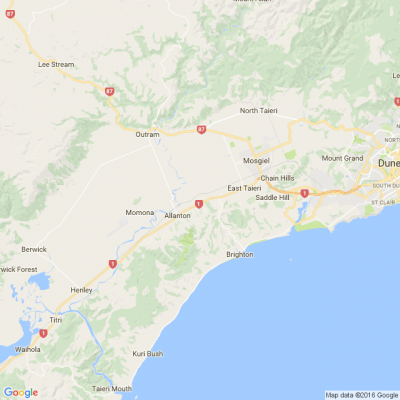
Know what’s happening
Access the private noticeboard for verified neighbours near you. Keep informed about any suspicious activity, send urgent updates to your neighbours when required and discuss emergency planning.
Get to know your neighbours
Browse the directory and start getting to know your neighbours. Don’t want to post to the whole neighbourhood? Send a private message.
Buy, sell and give away
Want to declutter your garage? Buy some used household items? Give away some garden stuff? Become a verified neighbour to browse and post items for sale. Trading is simple when everyone lives nearby.

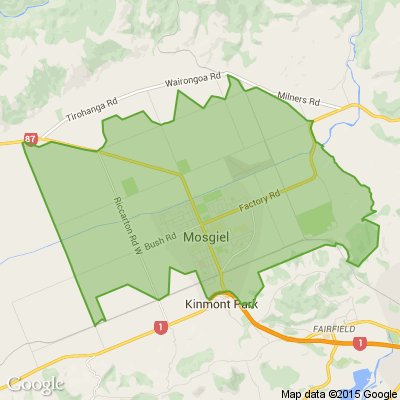
Voted for NZ's Merriest Home yet?
Check out the finalists and take your pick!

Thank you for using Neighbourly
You may receive an email confirmation for any offer you selected. The associated companies will contact you directly to activate your requests.
Mehrdad from South Dunedin
Nice good condition California King Bed set with firm mattress. Pottery Barn Brand
Can offer bed sheet and duvet/inner also(+50)
Price: $2,500
Saddle View from Green Island - Abbotsford
The team at Green island Medical Centre are experiencing high demand for our services at present.
Please call us two weeks in advance to book appointments for regular health care and repeat prescriptions.
We have limited appointments available and are affected by staff shortages like much of … View moreThe team at Green island Medical Centre are experiencing high demand for our services at present.
Please call us two weeks in advance to book appointments for regular health care and repeat prescriptions.
We have limited appointments available and are affected by staff shortages like much of the country’s medical sector.
We have recently had a GP go on maternity leave with a new baby (Congratulations Dr Burton and family) and will say good-bye to Dr Thompson soon when he relocates to Wanaka.
Our team is committed to providing our patient community with the primary care they need when they need it and will continue to do our best for you and your family.
Come and try out our new Robo Doc as seen in a recent ODT article.
www.odt.co.nz...
Our new building is under construction and we look forward to moving into it sometime next year.
Thank you,
GREEN ISLAND MEDICAL CENTRE
4 Howden Street Ph: 03 488 2754
Ian from South Dunedin
Probus is Fun, Fellowship and Friendship in retirement and membership is open to men & women who are retired or semi-retired.
Probus provides retirees with the opportunity to connect socially, which is so important in today’s world.
Probus Clubs offer a range of activities including … View moreProbus is Fun, Fellowship and Friendship in retirement and membership is open to men & women who are retired or semi-retired.
Probus provides retirees with the opportunity to connect socially, which is so important in today’s world.
Probus Clubs offer a range of activities including trips and outings for members to enjoy, depending on their interests, lifestyle and location.
Probus Club members meet monthly, to enjoy the company of like-minded fellow retirees and listen to interesting guest speakers.
Probus is a great way to make new friends, learn a
new skill, explore new interests and hobbies in retirement.
To learn more contact:
Mosgiel
Jackie Dalziel, Mosgiel Ladies Probus Club, 027 316 3961 or 489-1584
Darrell Cook, Mosgiel Men’s Probus Club, 425-0262 or 022 493 5530
Green Island-Fairfield
Stewart Alderton, Green Island Fairfield Men’s Probus Club 481-1797
Dunedin South
Nola Vaughan, Dunedin South Ladies Probus Club, 027 455 9935
Jack Holt, The Probus Club of Dunedin South (Mens), 455-6367 or 027 455 455
Andersons Bay -Tainui
Enid Weir, Andersons Bay – Tainui Ladies Probus Club, 455-4299
North Dunedin
Peter Begg, Probus North Dunedin Men’s Club, peabee@xtra.co.nz

The Team from Resene ColorShop Dunedin
Simple stripes create stunning results with these great craft ideas. Brighten up some old napkins (or plain new ones) with eye-catching designs inspired by traditional patterns using Resene paint. Plus paint your own height chart and Ti rakau.
Find out how to create your own.

Nicole Mathewson Reporter from Dunedin News
From reporter Hamish McNeilly:
The repatriation of taonga should not be treated as a ‘’moment of loss’’ for a museum.
Those comments come from Dr Gerard O’Regan (Ngāi Tahu), curator Māori at Tūhura Otago Museum, which has announced two significant repatriation of museum acquired… View moreFrom reporter Hamish McNeilly:
The repatriation of taonga should not be treated as a ‘’moment of loss’’ for a museum.
Those comments come from Dr Gerard O’Regan (Ngāi Tahu), curator Māori at Tūhura Otago Museum, which has announced two significant repatriation of museum acquired artefacts in as many weeks.
The first of those repatriated taonga was a taiaha (a long wooden weapon), returned to Ngāti Maniapoto as part of the iwi’s Treaty settlement, after the museum received advice from local rūnanga.
On Tuesday, the museum announced it would also be returning six cultural artefacts, including a kalpunta (boomerang), palya/kupija (adze) and a selection of marttan (stone knives), which are of Warumungu origin, from Indigenous Australians of the Northern Territory.
A few months ago the museum board decided to repatriate a lintel, a carved piece of wood above a door, to Ngāti Kahungunu.
‘’Under the repatriation process a whole lot of taonga are having their time in the light ... and that is where they are doing their work in terms of connecting us back to our people,’’ O’Regan, who has worked in heritage management for three decades, said.
‘’That is why when we look at repatriation we should not look at it as a moment of loss but a moment where we can actually get hold of a whole lot of stories and interrelationships and bring them together ... and create a moment.’’
The items were more than just artefacts in a museum, but treasures or taonga, O’Regan said.
‘’When you start talking about things as ‘treasures’ or taonga, people have to treasure them, and that is about who has connection to them ... who they are important to.’’
Canterbury Museum head of collections and research Sarah Murray said the museum had been involved in several repatriations in recent years.
In July, it was one of five New Zealand museums that returned Moriori karāpuna (ancestors) to the Hokotehi Moriori Trust (Rēkohu/Chatham Islands) in a national repatriation ceremony at Te Papa Tongarewa.
In May, the museum returned three iwi kūpuna (Hawaiian ancestral remains) to Hawaii, and also repatriated tīpuna to Rangitāne in 2009, Rapa Nui in 2018 and Confederated Tribes from the US Northwest in 2019.
Active discussions about repatriating kōiwi tangata (ancestral remains) and taonga were continuing, Murray said.
The museum worked closely with mana whenua and Ōhākī o Ngā Tīpuna, its iwi advisory group, as well as other New Zealand museums as part of the Ngākahu National Repatriation Partnership.
From the early 1970s, the late Maui Pomare was involved with international repatriations, as part of his work at the National Museum and which led to the return of 37 tūpuna (ancestors).
Since July 1, 2003 until May 1, 2017, Te Papa repatriated 420 Māori and Moriori ancestral remains from overseas institutions, with an estimated 600 remaining offshore.
In 2020, four toi moko (ancestral heads) were returned from Germany.
O’Regan said one of the first significant items repatriated from Otago Museum was the wharenui Mataatua – a fully carved Māori ancestral meeting house, which had toured the world before spending 70 years at the museum.
In 1983, the Ngāti Awa trust board began negotiating its return, and it was finally restored and reopened at its Whakatane site in 2011.
And the recent items would not be the last items to be repatriated, with the Otago Museum in ‘’ongoing conversations’’ with North Island-based iwi over other significant items.
O’Regan said it was important to view the story behind each taonga before any meaningful repatriation could be made.
‘’At the moment we are focused on taonga going away, but at some point there will be other taonga finding their way back here.’’
Some repatriation discussions in New Zealand centred not around artefacts, but around ko iwi (ancestral bones).
The museum took the view that if the bones were known to be ‘’from our tribal area, it is our responsibility to look after them’’.
And the museum, alongside the Southland and Canterbury Museums, would continue to store those ko iwi, which are under the management of Ngāi Tahu, until a decision about their future was made.

Nicole Mathewson Reporter from Otago News
From reporter Debbie Jamieson:
A new Central Otago airport based in Tarras would be reliant on mass inbound tourism to be viable, Queenstown Airport chief executive Glen Sowry says.
“Do the communities of Queenstown Lakes District and Central Otago want that level of mass inbound tourism … View moreFrom reporter Debbie Jamieson:
A new Central Otago airport based in Tarras would be reliant on mass inbound tourism to be viable, Queenstown Airport chief executive Glen Sowry says.
“Do the communities of Queenstown Lakes District and Central Otago want that level of mass inbound tourism that is required to justify that airport?” he asked.
“Every conversation I’ve been part of and privy to, the answer to that is ‘no’.”
Sowry was talking as Queenstown Airport Corporation prepared to publicly launch its first 10-year plan.
The plan recognises that Christchurch International Airport Limited (CIAL) is investigating the feasibility and establishment of an international airport at Tarras but assumes it will not be developed before 2032
Sowry said travellers saw enormous value in being able to fly in and out of Queenstown.
“It is close and convenient. The location and amenity Queenstown Airport offers are very attractive.”
Despite the recent resignation of CIAL chief executive Malcolm Johns, CIAL chairperson Catherine Drayton said the organisation would focus on growth including “intergenerational projects such as the Central Otago airport project”.
CIAL project director Michael Singleton said demand to and from Central Otago would continue to grow.
“Central Otago’s need for new airport infrastructure has been talked about for decades – and not just by us.
“Covid-19 has not taken away the limits on the area’s airport capacity – it’s just changed the timeframe on when they will be reached,” he said.
The 10-year Queenstown plan precedes the preparation of a 30-year masterplan, which will provide more specifics on how the airport will achieve its goals.
The masterplan process will include public input and would replace a 2018 plan, which resulted in a huge backlash from the public that owns three-quarters of the airport via the Queenstown Lakes District Council.
The corporation has since pulled back on contentious issues within the 2018 plan.
It’s intention to introduce more flights to Wānaka Airport was quashed when a High Court Judicial Review found the corporation’s 100-year lease of Wānaka report was unlawful.
The plan to increase noise levels and more than double the number of passenger movements at the airport to over five million by 2031 was so unpopular it was dumped by Sowry soon after he started in the role.
The slow-down in international tourism from Covid-19 has reduced pressure on Queenstown Airport, and the 10-year plan shows capacity to continue growing within current noise boundaries.
Air New Zealand flight NZ1209 from Auckland lands in Queenstown, welcomed by Queenstown Lakes District Mayor Jim Boult, Clutha-Southland MP Hamish Walker, and Queenstown Airport Corporation chief executive Colin Keel.
In 2018 and using pre-Covid-19 growth rates, previous airport chief executive Colin Keel estimated the airport would reach capacity in its noise boundaries around 2022.
However, the number of passenger movements peaked in the year ended June 2019 when there was 2.3m passenger movements (or 1.15m arriving) passengers.
That dipped to 1.1 million in the last year. Forecasts now project 3.2 million passenger movements in the financial year ending June 2032.
The plan anticipates these numbers will be achievable within the current noise boundaries.
Airlines use of “new engine option” (neo) planes could increase capacity at the airport by another 25%, Sowry said.
Air New Zealand and Qantas are already including the planes in their fleets. They use 15% less fuel, are quieter and carry more passengers.
Sowry said the 10-year plan was written to reflect the “sensitivities and concerns” of the community, but also apply a responsible view of the biggest economic asset the region owns.
Increasingly that was about delivering those principles in an environmentally sensitive manner, he said.
The plan includes an intention to achieve carbon neutrality in the coming year, and net-zero by 2040, within the airport.
With the bulk of carbon emissions coming from aircraft, the airport would look to support the “highly motivated” airlines and aircraft manufacturers looking to run electric aircraft and those operated by alternative fuels.
It also contains an intention to develop airport owned land to diversify revenue, including moving the general aviation hub and creating commercial and industrial developments around Queenstown Airport.
The corporation also owned 148.5 hectares of land surrounding Wānaka Airport, which was leased for farming activities and to NASA for their superpressure balloon launches.
There were no plans to further develop that land.

The Team from Red Cross Shop Dunedin
Come and fill a bag for $2 on all pink and orange marked down clothing at the Red Cross shop this week.
Sale ends this Saturday to make room for new Spring 🌼 stock

Mei Leng Wong Reporter from NZ Gardener & Get Growing
Dear neighbours,
Every month, NZ Gardener runs a series of tested reader recipes using a seasonal crop. We are now on the hunt for new potato recipes, so send your best ones to mailbox@nzgardener.co.nz by Sept 25, 2022.
Every published recipe wins a copy of our special edition Vegetable … View moreDear neighbours,
Every month, NZ Gardener runs a series of tested reader recipes using a seasonal crop. We are now on the hunt for new potato recipes, so send your best ones to mailbox@nzgardener.co.nz by Sept 25, 2022.
Every published recipe wins a copy of our special edition Vegetable Growing Made Easy.

The Team from Resene ColorShop Dunedin
Brighten up a tired concrete wall with Resene Lumbersider. Find out how to brighten up your wall.

Nicole Mathewson Reporter from Otago News
From reporter Debbie Jamieson:
Student workers as young as 12 are being snapped up by Queenstown employers facing critical staff shortages.
And despite there being no minimum wage for children under the age of 16, many are being paid over $20 an hour.
Trinity Jones, 14, started working at … View moreFrom reporter Debbie Jamieson:
Student workers as young as 12 are being snapped up by Queenstown employers facing critical staff shortages.
And despite there being no minimum wage for children under the age of 16, many are being paid over $20 an hour.
Trinity Jones, 14, started working at Joe’s Garage Cafe in Frankton last December and has fast become a valued member of staff, co-owner and Joe’s Garage Five Mile restaurant manager Ryan Churchman said.
He employed about 20 students from nearby Wakatipu High School, and they now make up more than half of his employees – with the youngest 12 years old.
They started on a wage of $16 but many of the students were now above the adult minimum wage of $21.20, he said.
“[Employing students] started out of necessity, but it’s definitely something we would keep doing, even if we didn’t have to, because the students are really good.
“We make sure we’re paying them what they’re worth if they’re doing the same work as older staff.”
Queenstown businesses have been struggling with a critical worker shortage since international borders opened earlier this year, paving the way for the return of overseas visitors.
The key difficulty has been replacing the thousands of migrant workers who worked in hospitality and service industries but left New Zealand during Covid-19.
The pages of local newspapers are filled with hundreds of job vacancies and almost every restaurant, cafe and bar has a “staff wanted” sign in the window.
Most are closed two or three days a week, some are restricting their working hours and others are downsizing their menus to cope with the lack of staff.
For many, employing young people has helped fill that gap.
Skyline Queenstown general manager Wayne Rose said his company had always employed local teenagers but had significantly more students working during school holidays this year as they sought to fill roles.
Fourteen-year-olds were paid the same rate as adult workers, he said.
Queenstown Pak’nSave owner Michelle King said the supermarket had always employed local high school students but had recently noticed an increase in applicants.
“It’s not that we’ve necessarily gone looking for them, but it’s been really great timing.”
In terms of staff numbers, students now make up about 10% of the supermarket’s workforce.
Queenstown’s only secondary school, Wakatipu High School, moved to Frankton, close to the supermarket, in 2018, and that had been an advantage, King said.
The supermarket paid all staff members, including students, above the minimum wage from their start with the company.
Novotel Queenstown Lakeside general manager Jim Moore said he would love to have more students working in housekeeping, and suggested the students had their choice of jobs in the current market.
“If my kids are anything to go by, cleaning their room is not one of their strengths,” he said.
Sharlene Inch said daughter Amber started working in housekeeping at a hotel last year when she was 14, and recently switched to restaurant work.
She was getting at least the adult minimum wage in both jobs.
New Zealand’s employment laws do not provide a minimum wage for children under the age of 16 but do stipulate that their employment cannot interfere with them attending school, and they cannot work between 10pm and 6am on any day.
While most employers respected the importance of school work, one mother said her son had been asked to take a day off school to work in his retail job, to ensure the store could open that day.
Another father said his child left a job because of pressure to work longer hours.
Mother-of-three Nikki Jones said all of her children were working in cafes, including 12-year-old Jett, a year 8 student who recently started work at the Airspresso Cafe at Queenstown Airport, on $16 an hour.
“I always joke that the children are holding up the tourism industry in Queenstown,” she said.
Her daughter, Trinity Jones, said she enjoyed having her own money but also working with the friendly staff at Joe’s Garage.
“My confidence has definitely grown,” she said.
Daniel Davies, 15, was employed at Joe’s Garage after he walked in and asked for a job.
He’s now saving for a car for when he is 16.
“There are a lot of jobs available. You could walk in anywhere,” he said.
Wakatipu High School principal Steve Hall said he had received a lot of positive feedback from the business community after the staff shortage during the July school holidays.
“They were telling me what great employees the students were and talking about their contribution to the community. People have recognised that’s what’s been happening.”
Working students needed to balance their school work, academic goals and extracurricular activities.
“But working is often really good for young people. There’s so much to learn. If the balance is right it’s a fantastic thing for them,” he said.
The Team from Neighbourly.co.nz
You've likely already heard, but this week is Māori Language Week - Te Wiki o te Reo Māori - and we'd like nothing more than to encourage your kōrero with some kai.
We have some delicious Whittaker's tiakarete (chocolate) to give away, so whether it's naming the days of … View moreYou've likely already heard, but this week is Māori Language Week - Te Wiki o te Reo Māori - and we'd like nothing more than to encourage your kōrero with some kai.
We have some delicious Whittaker's tiakarete (chocolate) to give away, so whether it's naming the days of the week, sharing your pepeha, or just a cheery kia ora - it's all about giving it a go.
Share any kōrero or kupu in the comments below to be in to win. Kia kaha!

The Team from Red Cross Shop Dunedin
Our Dunedin shop is excited to be filling the shop with more colour this week, with all our Spring season clothing.
Frances Hodgkins Retirement Village
Become part of our online community for over 60s, and get to know others who appreciate that the good times are just getting started!
PLUS — To celebrate the launch of our new Facebook group, Better Than Ever - each new member will go in the draw to WIN an iPad!

Mei Leng Wong Reporter from NZ Gardener & Get Growing
There's still time to sign up for this month's great offer. Our subscribers pay less than retail buyers, and this month, new subscribers also get a $25 voucher for Awapuni Nurseries. Pick from their amazing range of plants, and have them delivered straight to your door with their … View moreThere's still time to sign up for this month's great offer. Our subscribers pay less than retail buyers, and this month, new subscribers also get a $25 voucher for Awapuni Nurseries. Pick from their amazing range of plants, and have them delivered straight to your door with their nationwide delivery. $25 voucher valid from Sept 1-25, 2022.

Nicole Mathewson Reporter from Otago News
The chairperson of a body corporate claiming $163 million for leaky building repairs from the Queenstown Lakes District Council says they only want a fair outcome.
The council has said the Oaks Shore claim could result in each ratepayer having to pay $305 more in rates each year for 30 years.
… View moreThe chairperson of a body corporate claiming $163 million for leaky building repairs from the Queenstown Lakes District Council says they only want a fair outcome.
The council has said the Oaks Shore claim could result in each ratepayer having to pay $305 more in rates each year for 30 years.
Oaks Shore is an 84-unit apartment block developed by well-known Southland developer Ross Wensley and opened in 2005.
About 74 owners launched legal action against the council and parties including architects and structural engineers in 2015 when extensive water and structural issues were discovered – including to balconies, roofs, cladding and bathrooms.
Wensley – who was responsible for hundreds of new upmarket apartments in Queenstown before the global financial crisis hit in 2008 – could not be sued as six of his companies were placed in liquidation.
His daughter-in-law, Olivia Wensley, is a mayoral candidate for the Queenstown Lakes District this year.
The apartment owners were in a “horrific” situation, body corporate chairman Graeme Kruger said.
“All we want is our building to be fixed as it was meant to be in the first place.
“It’s broken owners’ hearts.”
A High Court hearing date had been set for February 2023, but he hoped the case would be resolved earlier through mediation.
Kruger said the owners of the apartments were mostly New Zealanders purchasing a holiday home or investment property.
“No matter what the outcome is we’re going to have to contribute to it.
“We just want natural justice and fairness for all parties.”
This month, the council made a submission to the Ministry of Business, Innovation and Employment (MBIE) urging it to include risk, liability and insurance in the scope of its review of the building consent system.
The existing rule meant if one party was insolvent or had no insurance, other parties remained responsible.
The council was often the only party left to compensate homeowners when building defects arose.
Under the current system, the council had experienced an increase in the number of claims by property owners for weather tightness and other building defects, the submissions says.
In the 2021-22 year, the council spent about $40m defending and/or resolving claims, which led to a median $50 rate increase for every property.
The council was disproportionately exposed to claims due to its small ratepayer base and large number of developments, it says.
Between 2003 and 2006, Queenstown Lakes issued the highest proportion of new dwelling consents per ratepayer in New Zealand, with 31.7 new dwelling consents per 1000 residents – about four times the national average.
The next closest district was Thames-Coromandel, issuing 18.9 per 1000 residents.
If successful, the Oak Shores claim would be one of the largest single claims in New Zealand.
“This would increase rates by an average of 9.6% and would cost $305 per property every year for 30 years,” the council’s submission says.
That could result in a loss in borrowing capacity for the council and would mean less investment in community assets such as parks, libraries, performing arts and recreation facilities.
The submissions also urge MBIE to consider funding support for the council.
“It is council’s position that requiring ratepayers to pay compensation where defendants are missing is unjust,” it says.
Kruger said the interest of ratepayers needed to be protected.
“It’s unfortunate that around the country the last party standing is the council or building authority.”

 Loading…
Loading…
Are you sure? Deleting this message permanently removes it from the Neighbourly website.
 Loading…
Loading…

 $3,300,000
$3,300,000



 Marketed by Ray Kean
Marketed by Ray Kean

 Deadline Sale
Deadline Sale



 Marketed by Ray Kean
Marketed by Ray Kean
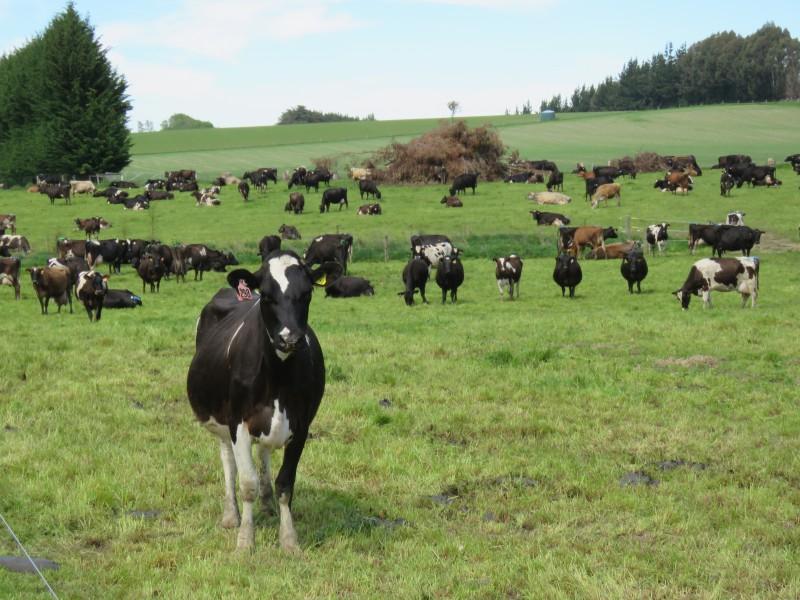
 Deadline Sale
Deadline Sale



 Marketed by Brett Lucas
Marketed by Brett Lucas
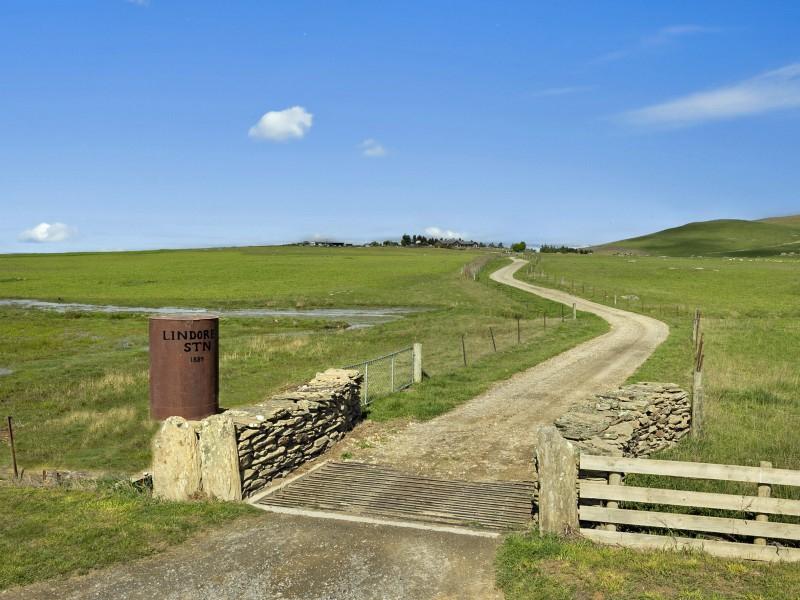
 $5,225,000 + GST (if any)
$5,225,000 + GST (if any)



 Marketed by John Faulks
Marketed by John Faulks
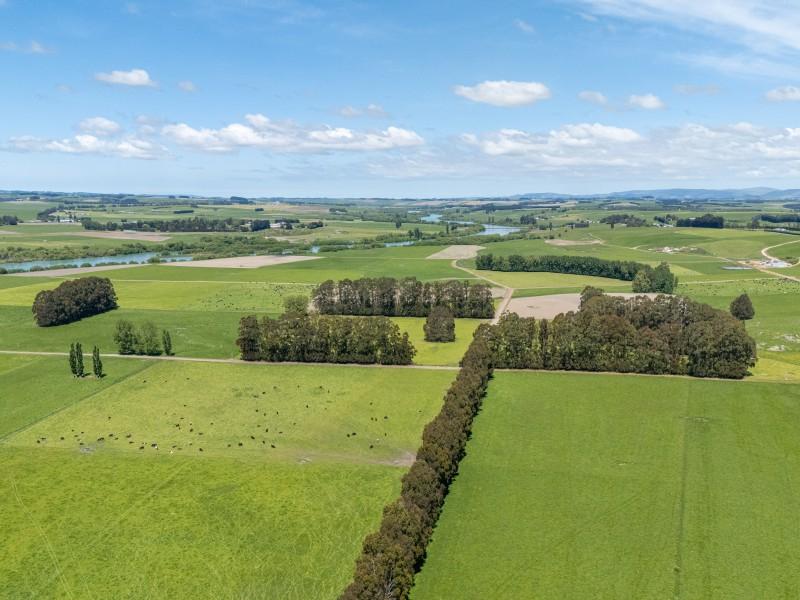
 By Negotiation
By Negotiation

 Marketed by Ray Kean
Marketed by Ray Kean
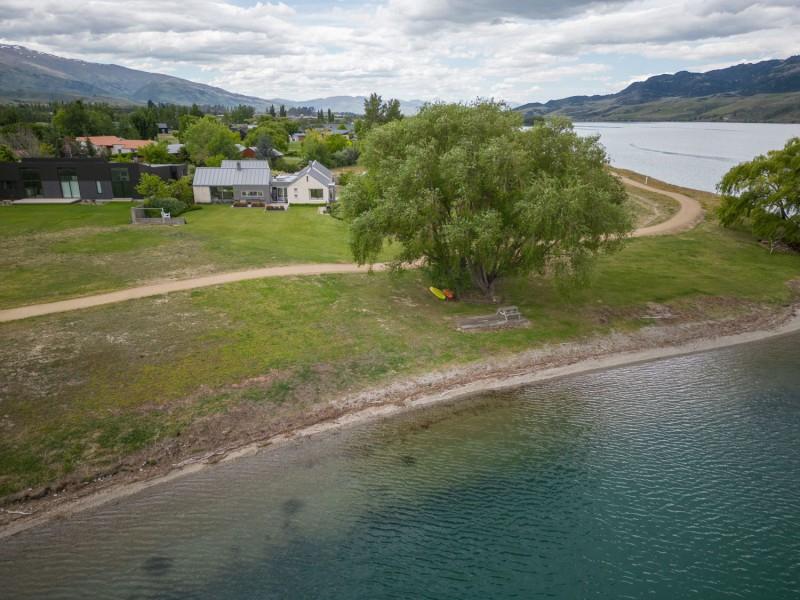
 Deadline Sale
Deadline Sale



 Marketed by Pam Van der Velden
Marketed by Pam Van der Velden
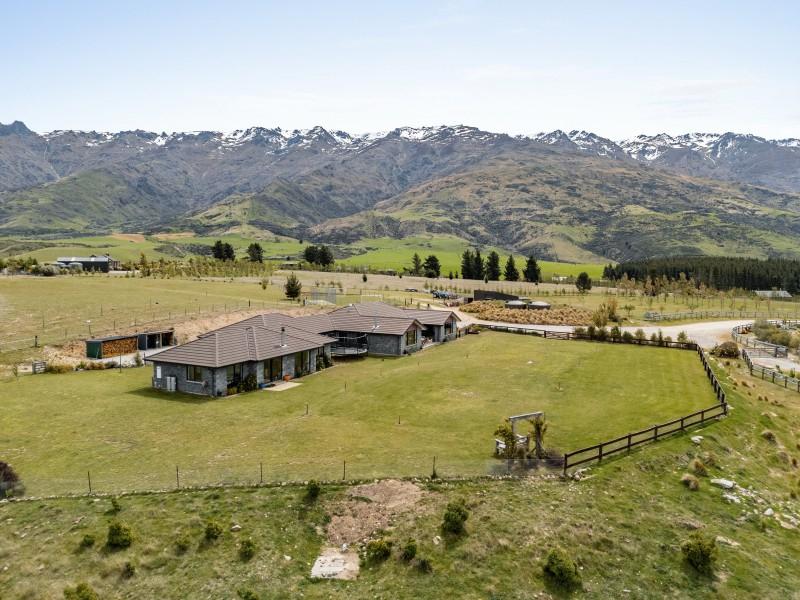
 For Sale $2,350,000
For Sale $2,350,000



 Marketed by Ruth Hodges
Marketed by Ruth Hodges

 By Negotiation
By Negotiation



 Marketed by Rachel Easson
Marketed by Rachel Easson
© Neighbourly 2024
